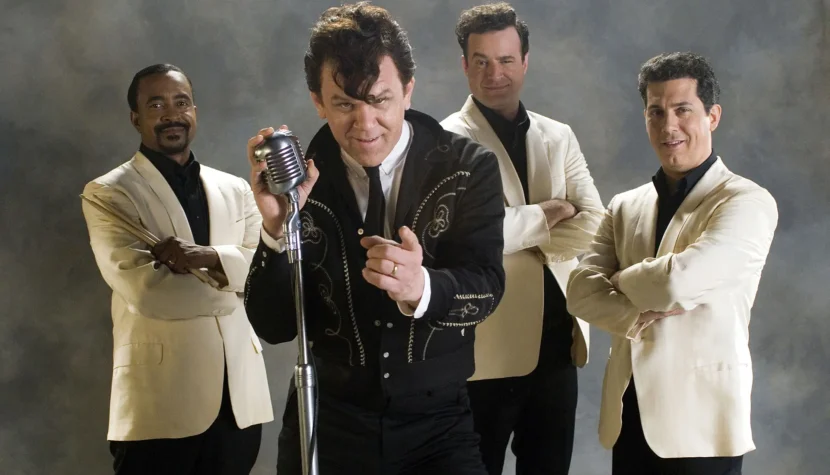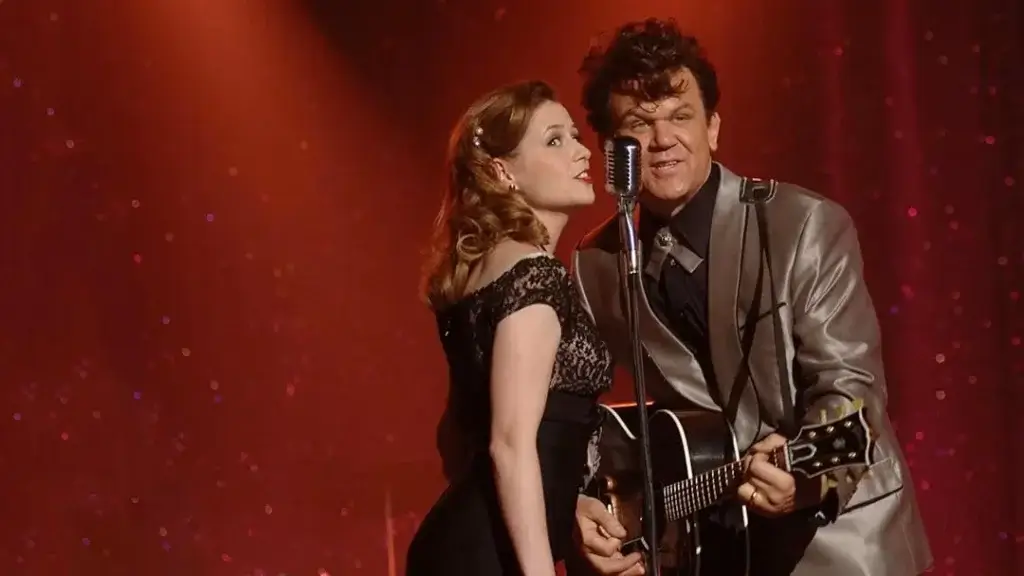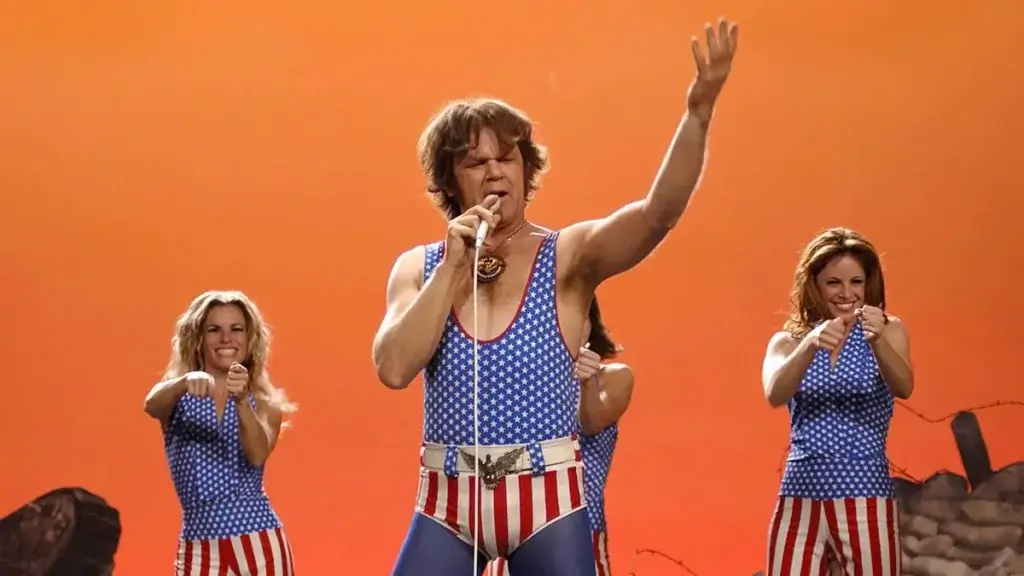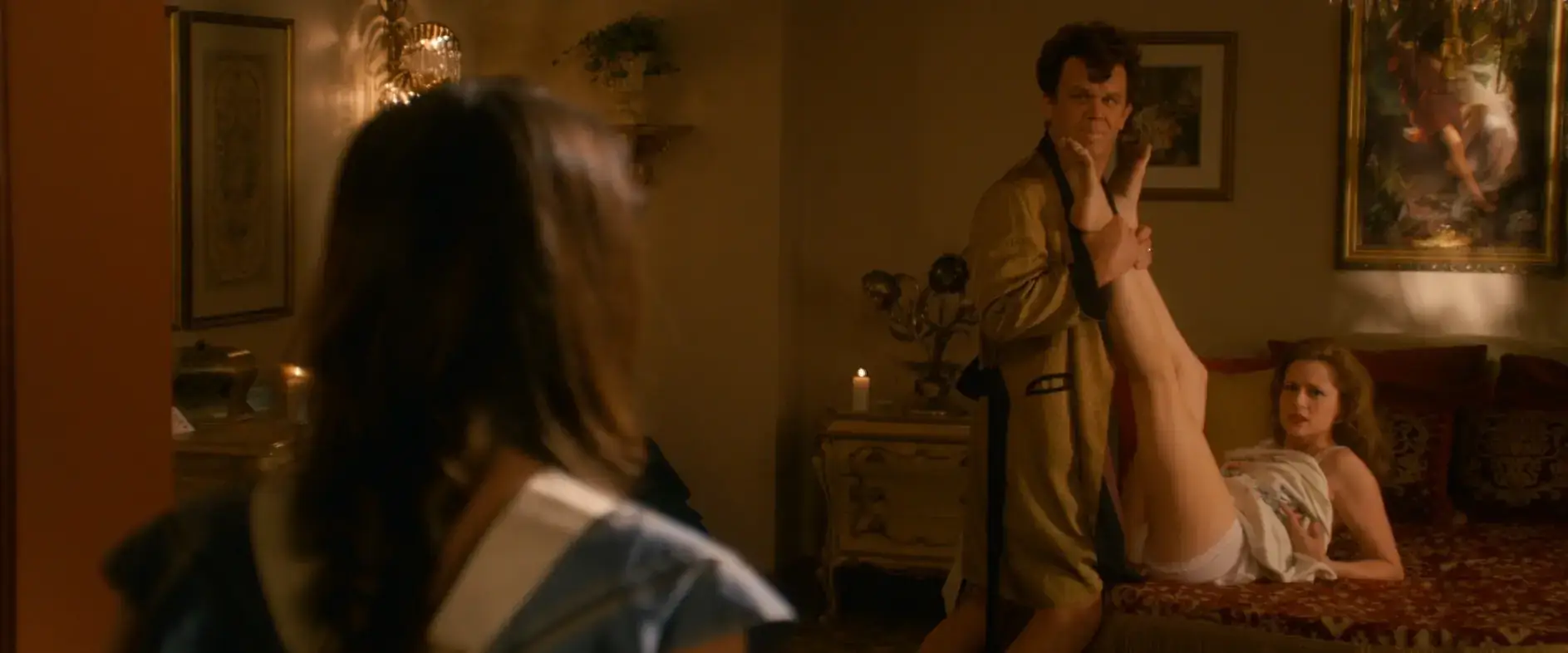“Walk Hard: The Dewey Cox Story”. Brilliantly constructed parody of musical biopics

“What stupidity!” – that’s the first thought that comes to mind just ten minutes into the movie. Two boys, somewhere in rural America, have a bizarre conversation that concludes with them deciding to “go play.” The older brother is a musical prodigy. The younger one, not quite on the same intellectual level, is simply a likable chubby kid. Their games are quite peculiar – taunting a rattlesnake, running from a bull, or a duel between “boy on a horse” and a tractor. It all ends with the older brother being chopped in half by a machete. Before he dies, he manages to entrust his younger brother with a mission to carry out in his life, now that the older one is gone – the younger must be brilliant enough for both of them. This traumatic experience causes young Dewey to lose his sense of smell. The father sums up the whole event by saying, “the wrong one died,” while the mother can’t understand why it’s impossible to sew the torso back to the legs. This is how “Walk Hard: The Dewey Cox Story” begins, a brilliantly constructed parody of musical biopics.
Director Jake Kasdan heavily draws from two main sources: “Walk the Line” and “Ray”. However, the film is not a direct caricature of these two films. They merely serve as a foundation for the plot, which unfolds as a classic “rags to riches” musician’s tale. A few years pass after the unfortunate machete incident. Dewey Cox is now a strapping, nearly 6-foot-tall twelve-year-old. During a school talent show, Dewey and his band’s sweet song “Hold My Hand” causes rock and roll hysteria among the youth and holy outrage among the elders. A priest declares that Dewey’s song is the devil’s work, because, after all, Satan has a hand and could be holding something. As a result, Dewey’s father kicks the “antichrist” out of the house, and Dewey heads to a nearby town to mop floors at a blues bar. While his teenage wife is giving birth to their first child, Cox “accidentally” performs on stage. “Accidentally,” that night, Jewish music moguls happen to be in the bar and offer Dewey a recording deal. From this point, the action unfolds rapidly and predictably – Dewey records an album, it sells spectacularly, he goes on tour; new car, new house, a monkey, a giraffe, eight kids, drugs, downfall, ripped-out sink, comeback, musical revelation, drugs, downfall, ripped-out sink, comeback…

No matter how trivial or absurd the plot may seem, it is funny. The beginning of the film sends a misleading signal that the movie will be downright silly. But quickly, the style shifts into a rather unusual type of parody. The characters are not idiots with a few funny lines to deliver. They are quite credible characters placed in a fairly believable world. The story seems just as believable, being a faithful copy of stories we’ve already seen on screen. So what makes this film a good parody? It’s precisely the right combination of these elements. We buy into the plot very easily, as we’re regularly fed this type of story with alarming frequency and terrifying predictability. So when you inject a bit of absurdity and a few gags into this stable mix, you get a rather unconventional type of film. However, it’s true that the humor is wildly uneven. From sharp verbal retorts to Monty Python-esque absurdities, to tiny penises front and center – straight out of “American Pie”. Unfortunately, there is a lack of consistency in this regard. Loud, genuine laughter alternates with cringeworthy smirks. It feels like too many people worked on the script, each with vastly different senses of humor.

Despite everything, “Walk Hard” is not a typical slapstick parody – it’s far from films like “The Naked Gun” or “Hot Shots!”. Instead, it precisely and ruthlessly skewers musical biopics. Perhaps not in the most original or sophisticated way, but certainly with 100% effectiveness. The method is childishly simple and handed to the filmmakers (the same ones behind “Superbad” and “Knocked Up”) on a silver platter – take all the stages of a musical biopic hero’s journey, create a parody song for each, add a few gags – parody complete. It sounds simple, but finding the right balance is the art that determines the final outcome. Following the directorial approach, the actors deliver quite satisfactory performances. They don’t overact with exaggerated theatricality or pseudo-comedic pastiche, instead maintaining a well-crafted balance and keeping a healthy distance from their characters. John C. Reilly is a perfect casting choice. With the face of a loser, a slightly overweight physique, and excellent makeup – Dewey Cox is like no other (if he actually existed). The songs are also brilliantly crafted, mercilessly poking fun at several musical genres and artists. Most of them target the classics, but the ending takes a jab at the contemporary music world – with a brilliantly satirical rap crossover and a Lifetime Achievement Award. Kudos for the sharp criticism and keen observations.

“Walk Hard: The Dewey Cox Story” starts from a relatively low bar but gradually gains clarity and solid humor. The brilliantly exaggerated characters, painfully exposed clichés, and mocked platitudes – which are usually abundant in musical biopics – are the strength and driving force of the film. Two Golden Globe nominations (for Best Original Song and Best Actor in a Musical/Comedy) certainly speak for themselves. And when you add Elvis Presley perfecting his “karate-chop,” or The Beatles meditating with the help of LSD, the mix becomes truly explosive and definitely worth watching.
Written by Andrzej Wisniewski

